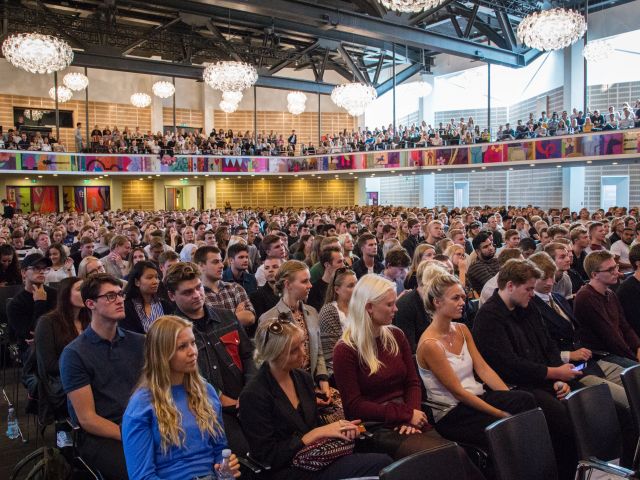Climbing SU expenses worry minister

(Photo: Anna Holte)
A new prognosis shows that student grant (SU) expenses related to students from other EU countries will increase to DKK 650 million by 2023 – that is DKK 201 million more than budgeted. The Minister for Higher Education and Science is eager to discuss ways to prevent this trend.
Previous measures introduced to limit expenses from the EU students receiving SU will not be sufficient, concludes a new prognosis from the Ministry for Higher Education and Science.
According to the ministry press release, the SU expenses generated by students from other EU countries will rise to DKK 650 million by 2023 – that is DKK 201 million above the limit set by the parties on the SU conciliation board.
“It worries me that the SU expenses covering students from other EU countries keep increasing despite the measurements introduced by the previous government. Our new prognosis shows that we will see a further increase in these expenses in future if we don’t step in. Therefore, I have informed the conciliation board about the prognosis so that we can find a solution together,” says Ane Halsboe-Jørgensen, the Minister of Higher Education and Science, in the press release and continues:
“We have a joint responsibility to devise initiatives that will make it possible to respect the SU agreement, with its cap on SU expenses from EU students.”
As described in earlier articles in CBS WIRE, the previous government demanded a cutback of 1,000 to 1,200 international study places. CBS was in focus and had to cut 250 study places for international students.
According to the press release, the cap on the number of international students has been partially effective. The increase in the number of international students coming to Denmark has flattened out. But, more and more of the international students from EU countries in Denmark are making use of the SU system due to their status as migrant workers, and this is fueling the expenses.
“The prognosis shows that this measure has not been enough, and I have to be honest and say that there are no easy solutions to this. When we cut back the number of educations in English, we risk, among other things, that it will affect smaller educations outside the big cities. We need good educations across the country, and we need to educate employees to meet company requirements,” says the minister in the press release.





































































































































I might be a laic here, but I must ask, what about the taxes that these non-Danish students pay to the Danish state on their SU and on their earnings as migrant workers? Shouldn’t the rising costs related to more non-Danish EU students receiving SU be balanced out with the equally rising taxes paid by them?